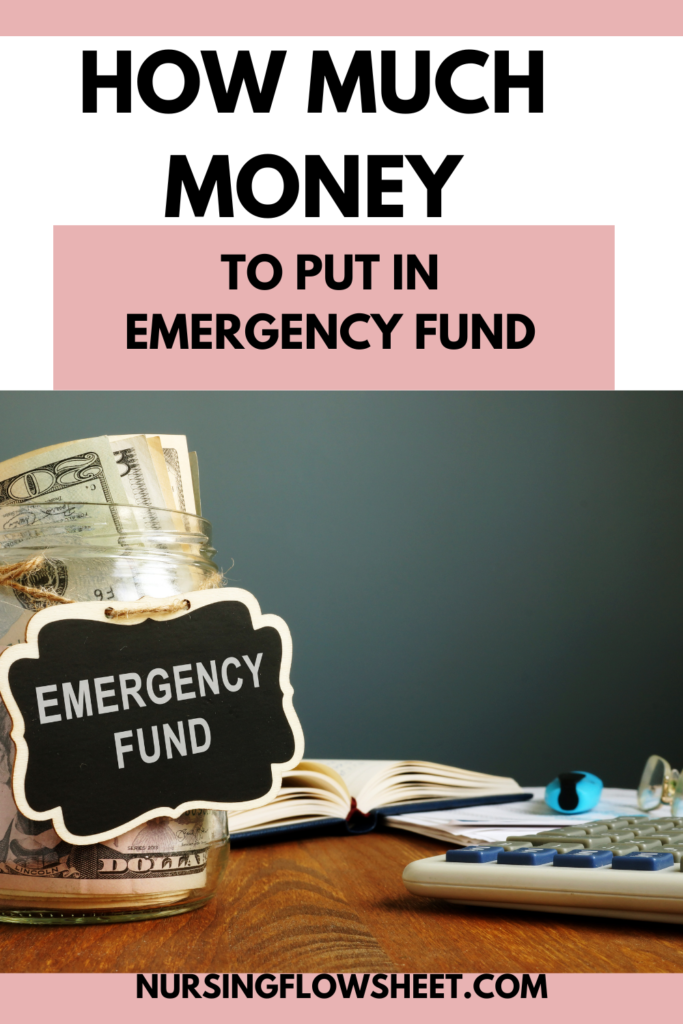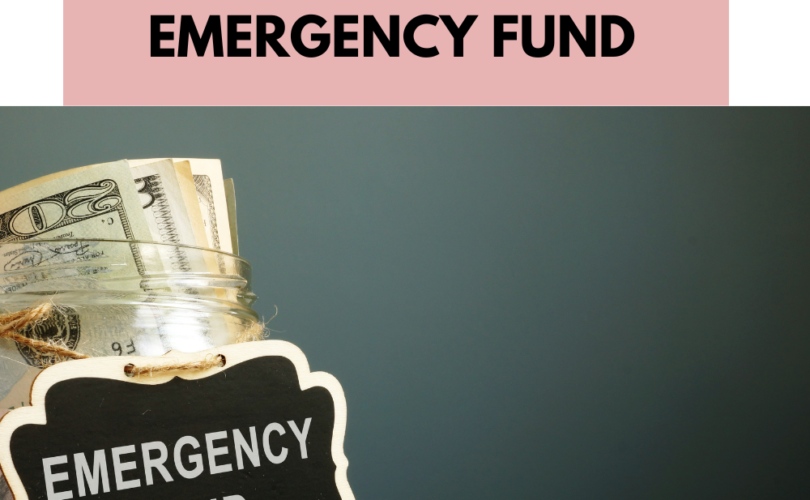At least 53% of Americans admit they don’t have an emergency fund, according to a recent poll conducted by CNBC and Momentive. Emergency funds are funds that you save to use for well, emergencies. Life throws curveballs at us all the time and the last thing you want is to not have something that could help you financially when this happens.
As nurses, we know that unexpected situations can arise faster than you can say “stat.” That’s why having an emergency fund is like having a financial cape that keeps us ready for any financial curveballs that life may throw our way. So, let’s explore the importance of emergency funds and why stashing “too much” cash in them might not be the best approach.

Why Emergency Funds is Important
Emergency funds are your financial safety net, providing you with a sense of security and peace of mind. They act as a shield against life’s unexpected expenses, like a flat tire, a sudden illness, or unforeseen home repairs. Having a dedicated emergency fund means you won’t need to rely on credit cards, loans, or dipping into your long-term investments when emergencies strike.
The Pitfalls of Keeping “Too Much” in Your Emergency Fund
While having an emergency fund is crucial, it’s important to strike a balance. Here are a few reasons why you shouldn’t keep “too much” money in your emergency fund:
Inflation
Money kept in a traditional savings account might lose value over time due to inflation. By keeping excessive amounts of cash, you run the risk of it losing its purchasing power in the future. To combat this, consider investing a portion of your emergency fund in assets that can outpace inflation.
Opportunity Cost
Money has the potential to grow if invested wisely. By stashing “too much” in your emergency fund, you may miss out on opportunities for growth and wealth-building. Allocating surplus funds into higher-yielding investments can help you make your money work harder for you while still maintaining accessibility for emergencies.
Finding the Balance
Finding the sweet spot between preparedness and growth potential is the key. Here’s how you can strike that balance with your emergency fund:
1. Assess your Needs and Calculate your Expenses
Evaluate your monthly expenses and aim to keep around 3 to 6 months’ worth in your emergency fund. This ensures you have a safety net to rely on during unforeseen circumstances.
2. Keep your Emergency Fund in a HYSA
High-Yield Savings Account: Keep your emergency fund in a high-yield savings account that offers a better interest rate than traditional savings accounts. This way, your money can earn some interest while remaining easily accessible when needed.
3. Invest the Excess
Once you’ve built a robust emergency fund, consider investing any surplus funds in low-risk, diversified portfolios or other investment vehicles that align with your financial goals. This allows your money to grow over time, providing you with potential long-term wealth-building opportunities.
In Conclusion,
Nurses, by understanding the importance of emergency funds and finding the right balance, you can achieve financial resilience and take control of your financial future. Remember, emergency funds are your superhero sidekick, but it’s equally important to make your money work for you. Let’s prioritize building and maintaining our emergency funds while exploring investment avenues to maximize our financial potential. Together, we can conquer financial literacy and thrive in our nursing careers!
Are you ready to level up your financial game? Start by setting up your emergency fund today and take that first step towards financial empowerment. For more tips and resources catered specifically to nurses, join our community and unlock the secrets to financial success.
Disclaimer: This blog post is for informational purposes only and does not constitute financial advice. Consult with a financial professional before making any investment decisions.






